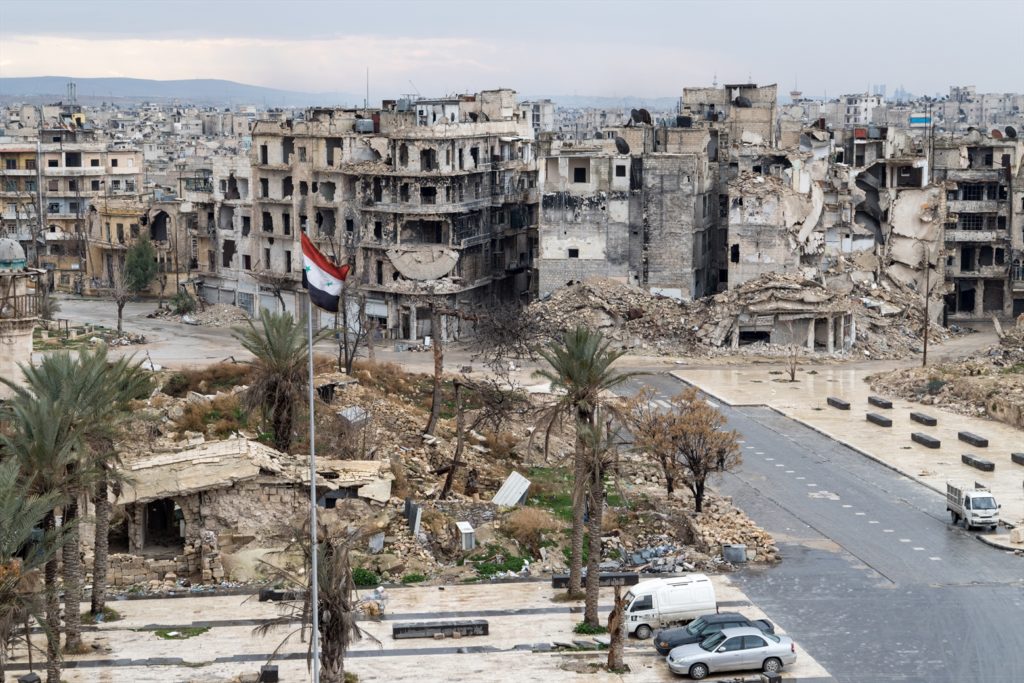
The historic meeting between the heads of the Catholic and Orthodox Churches took place not only out of shared concern for Middle Eastern Christians, but to try to avert confrontation between nuclear powers in Syria, according to the Russian Orthodox Patriarch.
When Patriarch Kirill met Pope Francis in 2016 it marked the first meeting between pope and patriarch since the Schism of 1054. Such an encounter had been discussed for decades, but it was hastened, according to reports at the time, out of a shared concern for Christians in the Middle East. At their meeting the pair signed a joint declaration outlining their Churches’ shared history and concerns, but not areas of theological divergence.
However, the patriarch, who is close to the government of Russian President Vladimir Putin, has claimed there had been an added motivation for meeting Francis as tensions between Russia and the US-led coalition escalated. During a meeting with Jordan’s King Abdullah II in Moscow on 15 February, Patriarch Kirill said: “Russia’s aerospace forces, together with the government troops, did their work, as you know, very successfully. However, other countries, having formed a coalition, did their own work.
“The very fact that the two powerful armed groups, which did not coordinate with [each] other, were present in that territory, was an enormous challenge. It posed a risk of large-scale hostilities; any mistake could lead to the direct clash between representatives of the nuclear-armed states.
“As soon as I realised this danger, I proposed to Pope Francis to meet without delay.”
The Syrian Civil War has been identified as the site of multiple concurrent conflicts, and some commentators have identified a proxy war between Russia and a US-led coalition that contains Turkey. Closer to home, any proxy war would inevitably draw in Iran and Israel. Kirill did not name the countries he believed might fire nuclear weapons, nor why he chose to make these comments now. The Vatican has not responded to them.
Kirill said he had hoped for international forces to form a single united front against terrorist factions in Syria. He said that Pope Francis and he had agreed that “those who are against terror must combat terrorism together, coordinating their actions”.
But he added: “Regrettably, it did not happen.”
According to a report of the meeting published by the Rome-based AsiaNews, Kirill also told King Abdullah that the most important countries in the fight against terrorism were unable to coordinate in joint actions, and in some cases there existed a suspicion that some people were exploiting terrorism for political purposes.
According to both reports of the meeting, Kirill drew a parallel between Russia as a multi-ethnic country, and the Middle East’s “multi-cultural, multi-ethnic and multi-religious whole”, and said terrorism threatened both and that therefore a united front against it was necessary.
Jordan has received millions of refugees from Iraq and Syria, including many Christians, as both countries dissolved into conflict in the last 15 years. Jordan is also home to around 230,000 predominantly Greek Orthodox Christians. King Abdullah told the patriarch: “The Orthodox Christianity was a part of our past, is a part of our present and must be preserved as a part of our future.” Otherwise, he said, everybody would have to pay a heavy price.
Earlier this month Kirill condemned the killing of five people at an Orthodox church in the region of Dagestan as “a provocation aimed at sparking hostilities [between] Orthodox believers and Muslims who have been living side by side in peace in the Caucasus for centuries”.
In January the patriarch said that Russian intervention in the Syrian crisis halted a “genocide” of Christians there.
In November Kirill expressed concerns about the impact of terrorism on Middle Eastern minorities in a joint statement agreed with the head of the Anglican Communion, Archbishop Justin Welby. However at the time, Bishop Hlib Lonchyna of the Ukrainian Catholic Eparchy in London told World Watch Monitor that President Putin “often instrumentalises the position or problems of Christians for his own political purposes”. The British government has accused Russia of “covering up” for Syrian President Bashar al-Assad after he was accused of carrying out chemical weapons attacks, but many Syrian church leaders regard Assad as a protector of Christians and the country’s other minority communities against radical Islamists.